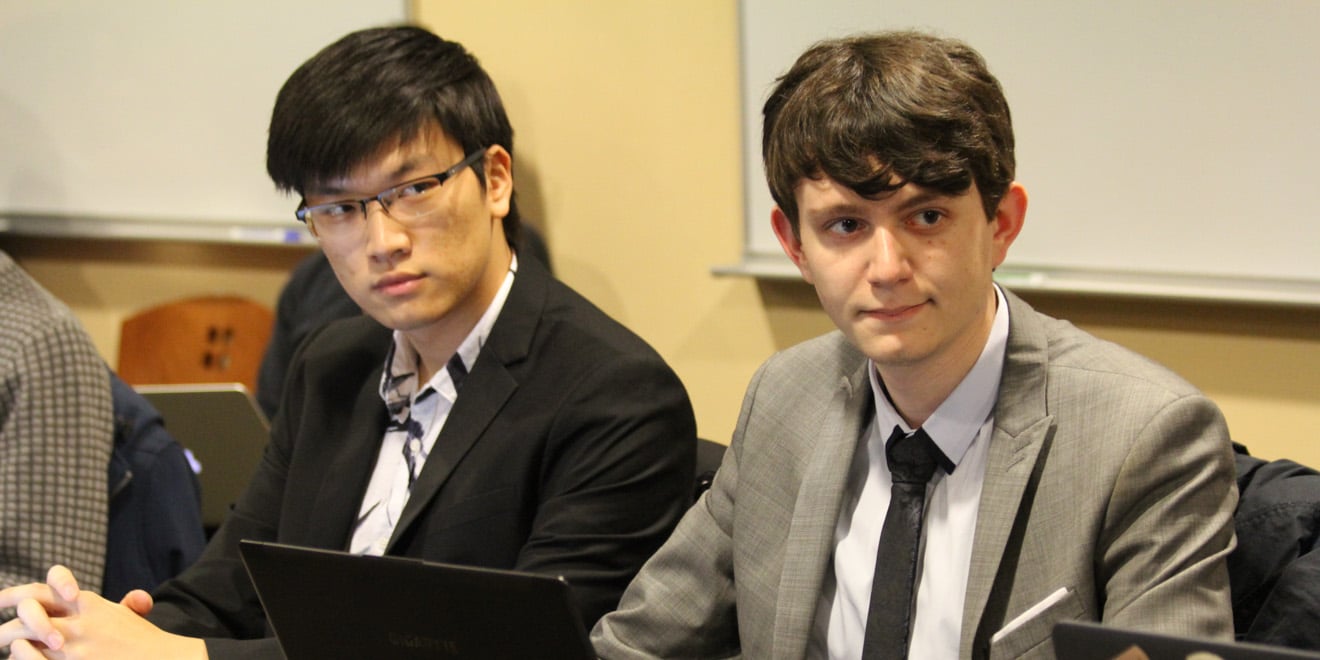On Tuesday evening, the 18th Undergraduate Senate unanimously passed a resolution condemning Stanford’s dismissal of Title IX attorney Crystal Riggins as retaliatory and demanding that the lawyer be reinstated.
Riggins was paid by Stanford to provide legal advice to complainants involved in the University’s Title IX proceedings. On Jan. 31, Riggins was dropped from her role following critical comments she made to The New York Times about the University’s sexual assault adjudication process. Lauren Schoenthaler, senior associate vice provost for institutional equity and access, wrote in an email to Riggins that the “lack of faith in Stanford’s Title IX Process” indicated by her public comments were grounds for termination.

During its meeting, the Senate heard from Schoenthaler while students — including members of Stanford Association for Sexual Assault Prevention (ASAP) — silently protested Riggins’ dismissal with red posters proclaiming “Students Want the Truth” and “Lack of Confidence in Stanford.”
Before the meeting, ASAP Co-President Matthew Baiza ’18 distributed a brief condemning Riggins’ termination and explaining why ASAP believes Stanford’s actions are “clearly a violation of Title IX.” The brief also condemns the University’s behavior since the dismissal as a “disingenuous” way to protect the school’s image. Frederick I. Richman Professor of Law Michele Dauber also provided a letter she signed alongside Ernest W. McFarland Professor of Law Deborah L. Rhode, Professor of Sociology Shelley Correll, William H. Neukom Professor of Law Mark A. Lemley and Louise Hewlett Nixon Professor David Palumbo-Liu. The letter that noted it is not “constructive for the University to silence critics rather than learn from their concerns.”
“This incident is embarrassing for Stanford and has caused me to question seriously whether Schoenthaler is really in the right role,” Dauber wrote in an email to The Daily. “It may be that her background in the General Counsel’s Office, which has the job of defending Stanford from lawsuits, including by survivors of sexual assault, is not the right sort of preparation for her current position.”
As senators questioned Schoenthaler about the series of events leading to Riggins’ dismissal, Schoenthaler emphasized that the act was not retaliatory but rather meant support complainants’ best interests.
“It is unconscionable to ask a victim to work with someone who is not optimistic about the process,” Schoenthaler said. “That is the lens through which I approach the issue.”
She pointed out that Stanford’s pilot program, which provides up to nine hours of legal advice free of charge to students in sexual assault cases, is unique, and that therefore there is no “playbook” to follow. She called the fact that Stanford is one of the only schools with such a program “shocking.”
“Stanford has spent a lot of time trying to create a fair process, but it is new and there are gaps,” Schoenthaler said. “We’re trying to course-correct and evolve. I made errors here in my communication. I can tell right now, there are those of you who doubt my motives, and that’s upsetting. [I’m] trying to do what’s best for students.”
After the Q&A with Schoenthaler, senators and students in attendance remained skeptical of the University’s motives in dropping Riggins and unconvinced that the action was not simply retaliation for Riggins’ comments to The New York Times. Multiple senators felt that the University’s “performance issue” justification for Riggins’ dismissal was simply a pretext, since Schoenthaler’s original dismissal email made no mention of it.
Senate Chair Shanta Katipamula ’19 also noted that she had met with Schoenthaler Tuesday morning and that Schoenthaler’s explanation of the dismissal timeline was not consistent between the two meetings or even within the singular Senate meeting.
“Fatalistic attitude is not an indictment of the performance itself, but of the system,” Senator Gabe Rosen ’19 said during an open forum held after Schoenthaler left. “Surely during a pilot year … you’d want to get as much feedback as possible — not unilaterally terminate someone for saying something in public that you didn’t like.”
The Senate’s resolution, which passed unanimously after the open forum, asked the University to reinstate Riggins and add additional sponsored lawyers, especially underrepresented minorities, who specialize in representing complainants. Pointing out inconsistencies between Riggins’ dismissal and Stanford’s support of academic freedom of speech, the resolution also called for a standardized process for performance evaluation of all Stanford-sponsored Title IX attorneys that would be transparent to all community members.
“We’re pretty ecstatic that the Senate decided to pass the resolution condemning the termination of Crystal Riggins,” Baiza said. “We believe that the University was trying to misconstrue what actually happened, and I believe that no one in the room bought the story that was being told.”
Contact Ellie Bowen at ebowen ‘at’ stanford.edu.
